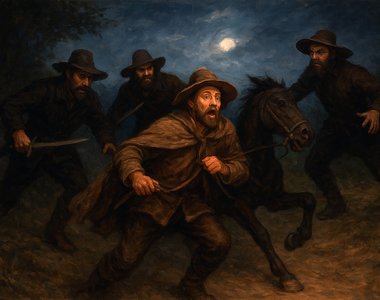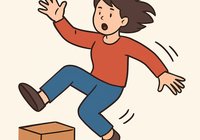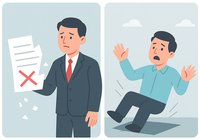| Phrasal verb | Main meaning |
|---|---|
fall upon [fɔːl əˈpɒn] | to attack suddenly and violently |
Other meanings
- to eagerly consume something (food, reading, work)
- to suddenly notice or discover something
Example Sentences Using the Phrasal Verb "fall upon"
- The bandits fell upon the travelers at night. Разбойники напали на путешественников ночью
- The children fell upon the cake with delight. Дети набросились на торт с восторгом
- She fell upon an old letter while cleaning the attic. Она наткнулась на старое письмо, убирая чердак
- His eyes fell upon a strange symbol on the wall. Его взгляд упал на странный символ на стене
Features of Using "fall upon"
This phrasal verb is old-fashioned and literary in the sense of “attack,” but it is still used in both literal and figurative ways. It often emphasizes suddenness, eagerness, or intensity.
Other phrasal verbs with the verb fall
fall apart
to break into pieces; disintegrate
fall off
to drop down from something
fall over
to lose balance and collapse to the ground
fall down
to collapse or drop to the ground
fall out
to stop being friends or in agreement
fall back
to retreat
fall in
to line up in formation
fall away
to gradually disappear or become less
fall behind
to move slower than others or fail to keep up
fall on
to attack or begin to attack someone or something
fall for
to be tricked or deceived
fall into
to begin to be in a particular state or condition
fall under
to be classified or placed within a particular category, jurisdiction, rule, or authority
fall to
to become the responsibility or duty of someone
fall through
to fail to happen or be completed
🔗 Learn more about the irregular verb fall, including its forms and usage.
















